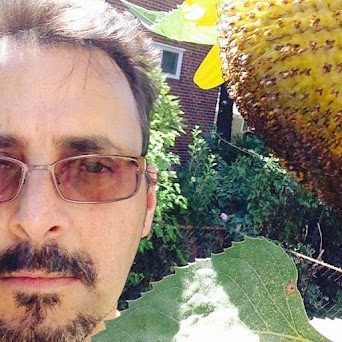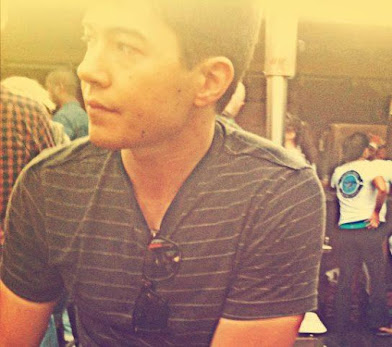Andrew Michael Gorin (
andrewmichaelgorin.info) is a poet, scholar, and Postdoctoral Teaching Fellow in the New York University English department, where his work focuses on the intersection of American literature and culture, media studies, and theories of the public sphere. He is the author of
Someone Like You (Gauss PDF, 2017), and the creator and co-editor of the collaborative writing project
Executive Orders (The Operating System and Organism for Poetic Research, 2016-2020). His critical and creative writings have appeared or are forthcoming from journals and periodicals including
Chicago Review,
Criticism,
Boston Review,
The Brooklyn Rail, and
Urban Omnibus, among other publications, and he has been a Writer-in-Residence at Millay Arts and Yaddo. He also serves as an organizer and editor for the multi-sited poetics working group and small press, the Organism for Poetic Research, and as an editor for the climate-crisis-and-culture platform, The Distance Plan. Since 2012, he's taught courses on literature, critical theory, and creative writing on the campuses of CUNY Brooklyn College, CUNY Queens College, and NYU. In the fall of 2022, he will be teaching a course on “Media and the Environment” in the NYU department of Media, Culture, and Communication.
Has your consideration of poetry changed since you began?
The important shift for me came when I figured out that I think poetry should do more than be clever, or interesting, or beautiful, or weird, or funny. I got tired of readings where the most rewarded work was the kind full of clever one-liners that got laughs, or work that rebelliously disrupted the high-seriousness of the genre through inappropriately jejune or surreal images and tones (I’m certainly guilty of writing like this at times). I’m all for humor, strangeness, linguistic play, youthful freshness etc.. But the ivory tower of poetic self-seriousness was toppled long ago. Poets should set their sights on cultural problems beyond the literary ones, even if academic battles are often proxy wars for larger social conflicts.
People tend not to think of him as a “political” poet, but oddly enough it was probably the time I spent reading and writing about Frank O’Hara that made me most interested in poetry that intervenes in oppressive norms of representation in the public sphere. I wrote an undergraduate thesis on O’Hara and the queer experience and politics underlying what I called his “dialectical sincerity.” I also gravitated toward the experimentalism of the Language writers, though it took me a long time to understand and critically assess the political implications of their work and theoretical writings (there’s plenty I now disagree with there). In general—and I think that many people who didn’t already feel this way have come to do so in the last 10 years—there’s too much at stake for any artform or cultural worker to neglect getting concertedly involved with the fight for social and environmental justice. And I absolutely disagree that there’s a necessary division between politically committed art and art that promotes some liberal ideal of aesthetic freedom from the exigencies of politics or the requirements of self-preservation. Sabotage of an oil pipeline is a very beautiful poem.
.jpg)








